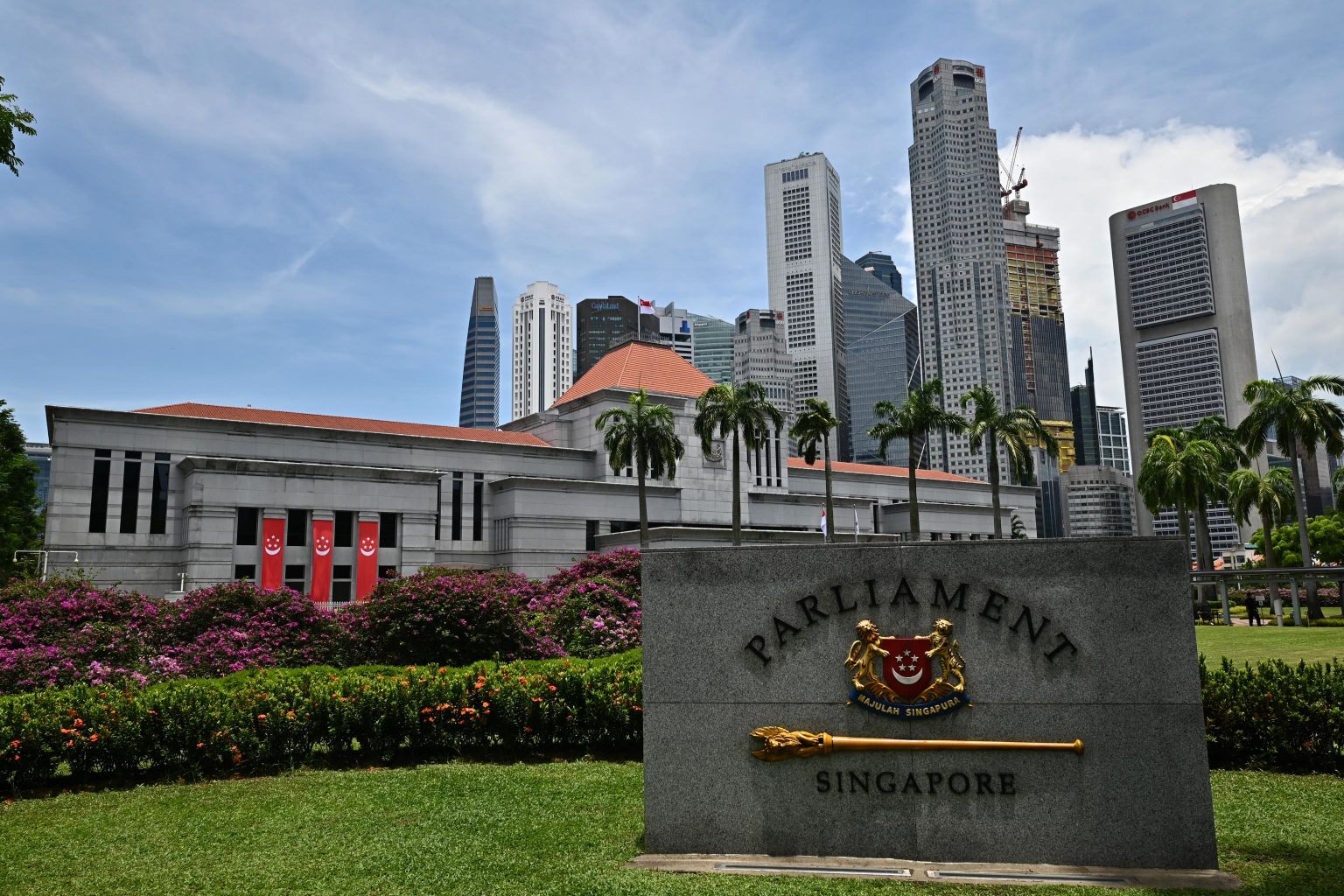Ministers, MPs must declare any foreign links and migration benefits under proposed new law
Sign up now: Get ST's newsletters delivered to your inbox

Those who will be subjected to these measures include Cabinet members, political parties and other office holders.
PHOTO: ST FILE
SINGAPORE - Political office holders and political parties in Singapore will be subjected to stringent measures to prevent them from being influenced by foreign nations, should a Bill tabled in Parliament on Monday (Sept 13) be passed.
Measures that will be imposed include a requirement to declare any foreign affiliations and any migration benefits - such as a foreign passport, entitlement to work in a foreign country, or to reside there on a permanent basis.
Those who will be subjected to these measures include Cabinet members, political parties and other office holders, as well as MPs, election candidates and their election agents who are directly involved in Singapore's political processes.
They are defined as Politically Significant Persons (PSPs) under the Foreign Interference (Countermeasures) Bill, said the Ministry of Home Affairs (MHA) in a statement setting out the purpose and scope of the Bill.
The Bill is meant to strengthen Singapore's ability to prevent, detect and disrupt foreign interference in domestic politics conducted through hostile information campaigns and the use of local proxies, said MHA.
Foreign interference is defined as attempts by foreign state actors to manipulate domestic politics through covert and deceptive means to undermine a nation's sovereignty and security.
In addition to the defined PSPs, a "competent authority" appointed by the Minister for Home Affairs may designate any Singaporean - living here or abroad - any person residing in Singapore, or any locally registered organisation as a PSP.
MHA did not elaborate on who this authority might be.
These designations can be made should the person or organisation's activities be "directed towards a political end", and if applying countermeasures on them has been assessed by the competent authority to be in public interest.
As a baseline, designated PSPs are subject to less stringent controls than defined PSPs, although the measures can be stepped up.
For instance, a designated PSP will be required to report single donations of $10,000 or more from local and foreign donors, as well as multiple donations from the same donor that total $10,000 or more during a specified period. They must also disclose affiliations with foreign entities.
In addition to these requirements, as a baseline, defined PSPs must maintain a separate bank account to receive political donations, and are not allowed to receive anonymous donations beyond $5,000 during a "relevant period" or in any calendar year.
Foreigners are also not allowed to volunteer for their political activities, said MHA.
"If there is an increased risk of foreign interference, the competent authority can issue directives to prohibit defined PSPs from affiliating with foreign principals," the ministry added.
The new Bill is aimed at plugging possible avenues where foreign interference in Singapore's politics can occur that are not addressed under current legislation, said MHA.
The Political Donations Act currently prohibits political associations and election candidates and agents from accepting donations from foreign sources, the ministry noted. The Act will be repealed and have its existing obligations ported into the Bill with additional measures.
However, there are no prohibitions on donations to MPs, political office holders, Leader of the House or Leader of the Opposition, said MHA.
In addition, foreigners are currently allowed to volunteer with political parties, election candidates and MPs.
"These are potential avenues for foreign principals to influence our domestic politics. The Bill seeks to address these gaps," said MHA.
Individuals and locally registered entities can also be required to return money or material support accepted for the enabling or publishing of content deemed harmful. They must return such support to the foreign entity who provided it, or surrender the amount to the competent authority.
This requirement, which can be imposed by the Minister for Home Affairs under the proposed Bill, is called a "disgorgement direction".
This is meant to "cripple the source of funding for harmful online content that is undertaken by or on behalf of a foreign principal", said MHA.
PSPs who wish to challenge their designation or stepped up countermeasures imposed on them may appeal to the Minister for Home Affairs, said MHA. They may also submit an application to the competent authority for reconsideration.
The Minister for Home Affairs may consult an advisory body when he hears appeals regarding designation and the stepped up countermeasures.


